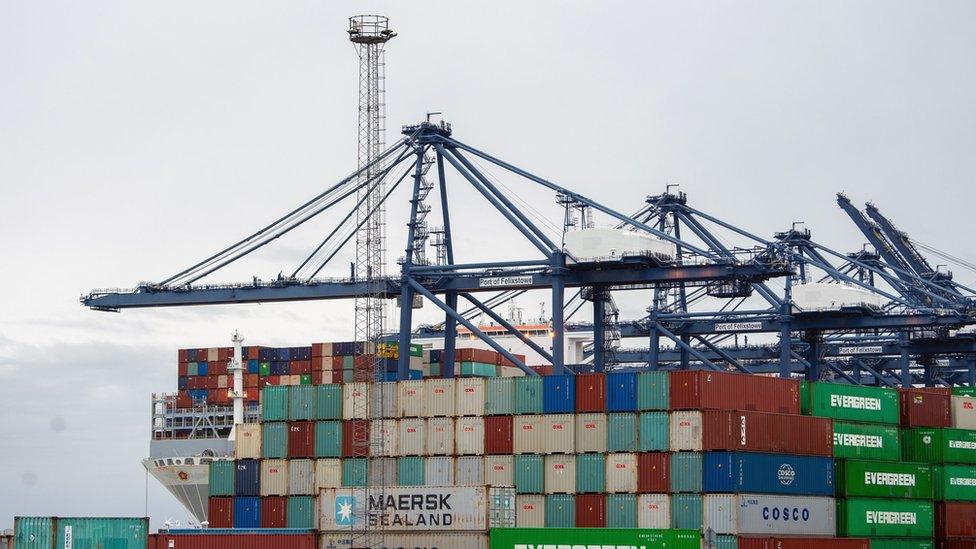UK pays EU £1.7bn to settle long-running import fraud case
- Published
- comments

The UK has announced it will pay the European Commission a further £1.7bn (€1.9bn) to settle a long-running dispute with the EU over import fraud.
In 2018, the commission sued the UK for €2.7bn, on the grounds the UK had failed to pass on the correct amount of tax for imports between 2011 and 2017.
In March 2022, EU judges largely ruled against the UK in the case.
The Treasury acknowledged the money was a "substantial sum" but argued it would "draw a line" under the case.
In a written statement to Parliament, external minister John Glen also said the government wanted to avoid building up a larger bill through "further protracted legal proceedings".
In a statement, the European Commission said the UK had now paid "all amounts due" from the court case, and it was taking steps to formally wind up the dispute.
The £1.7bn figure follows a £583m payment to the EU last June, and brings the total cost of the dispute to the UK to £2.3bn.
Why is the UK giving money to the EU?
The UK officially exited the EU's legal system in January 2021, however, the European Court of Justice (ECJ) retains the power to make rulings in cases relating to how the UK applied EU law before Brexit.
In 2018, the UK was accused of taking inadequate steps to prevent fraud after it was warned about the problem by the EU's watchdog, Olaf, in 2017.
An investigation by Olaf found that the UK was a "significant hub" for fraud, whereby organised crime groups used fake invoices to undervalue goods like textiles and footwear being imported from China - many of which were destined for the black market in other parts of the EU.
In its judgement, the ECJ found the UK had done too little to prevent fraud on imports, and had not given enough information to the commission.
It ruled that the undervaluation of imports meant the UK had not passed on the correct share of import taxes or VAT payments.
As an EU member at the time, the UK was obliged to make the payments to the Brussels-based body as part of its contribution to the EU budget.
The UK disputed the amount owed, arguing that the method used by Olaf to calculate the underpayments was not appropriate.
The EU judges upheld the commission's claim in March 2022, although it rejected how it calculated the final figure.
Mr Glen said: "Whilst the UK has now left the European Union and this is a legacy matter from before our departure, the government is keen to resolve this long-running case once and for all."